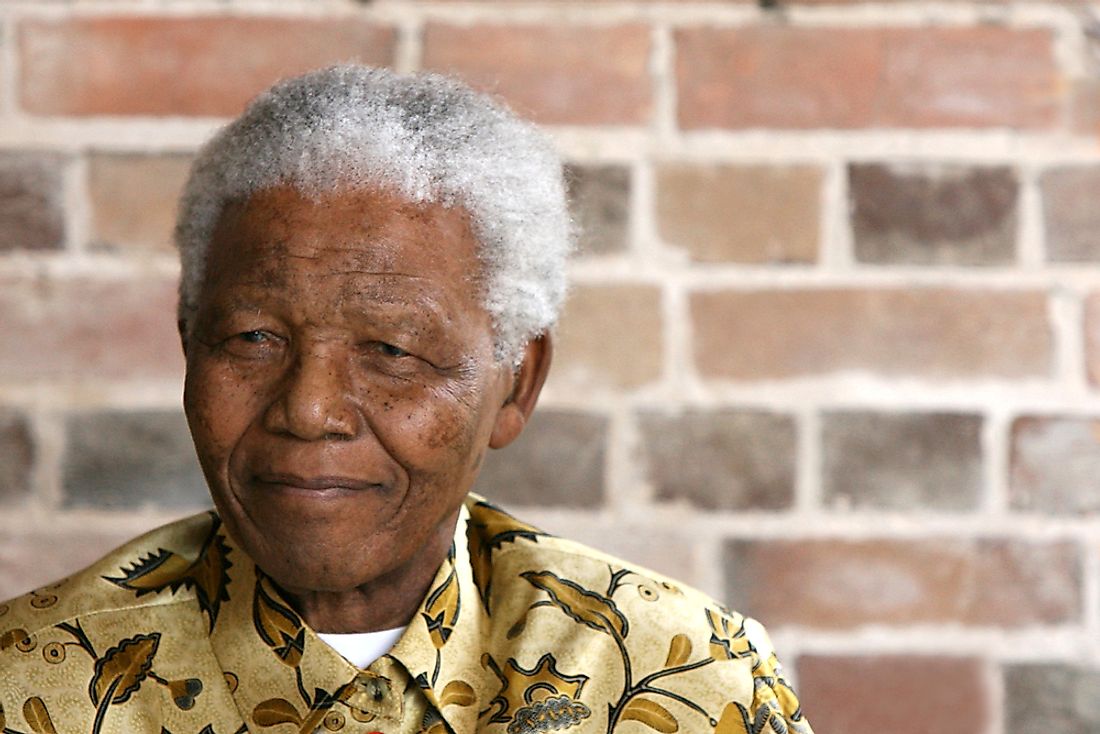Presidents Of South Africa

South Africa is the southernmost country in Africa. It is headed by a president elected by the national assembly and is always the leader of the party with the majority members of the Assembly. From 1961 until 1994 the office of the president was known as the office of the state president, the president and the defunct office of prime minister were both responsible for governing the country. In 1983, the constitution was amended, and the office of the prime minister was abolished. In 1993 the constitution was amended to limit the presidential time in office to a maximum of two five-year terms. After the end of the infamous apartheid rule in 1994, South Africa has had five presidents with Nelson Mandela being the first post-apartheid president.
Presidents of the Republic of South Africa
Nelson Mandela
Nelson Rolihlahla Mandela was the first post-apartheid president in South Africa and South Africa’s first black president. He was born on July 18, 1918, and served as the president of South Africa from 1994 until 1999. He is globally recognized for his role in anti-apartheid. Before joining active politics, he was worked as a lawyer in Johannesburg. Later he joined the anti-colonial politics and co-founded the Youth League of African National Congress (ANC). He led several protests and was later unsuccessfully charged for treason, however, in 1961 he led a sabotage campaign against the government, and in 1962 he was arrested and awarded a life sentence. He served 27 years on Robben Island and later in Pollsmoor and finally in Victor Vester. He was released from prison on February 11, 1990. Mandela served a single presidential term, but for his efforts in anti-apartheid and rebuilding South Africa, he is remembered as the “father of the nation.” He received more than 250 honors including the coveted Nobel Peace Prize. He died on December 5th, 2013 after suffering a respiratory problem.
Thabo Mbeki
Thabo Mbeki served as the second post-apartheid president of South Africa. He served for nine years, from June 14th, 1999 until September 24th, 2008. He resigned from office nine months before the end of his second term after a Judge found him guilty of interfering with the National Prosecuting Authority. In January 2009, the court of appeal overturned the ruling, but his resignation stood. Much was expected from Mbeki since he had succeeded Mandela, during his regime, the economy grew at 4.5% annually. There was massive job creation, and the middle-class grew at a faster rate. He made the country a focal point for international investors. He led the development of economic blocs such as BRIC (Brazil, Russia, India, and China) and India-Brazil-South Africa (IBSA). He is remembered for his role in dissolving conflicts in African states including Burundi, Ivory Coast, and the Democratic Republic of the Congo.
Kgalema Motlanthe
Kgalema Petrus Motlanthe was the third post-apartheid president of South Africa. He served the shortest term in office of them all, one that lasted only eight months from September 25, 2008 until May 9, 2009. Motlanthe took office after the resignation of Mbeki since he was the vice president and is the first Nothern Sotho-speaking president of South Africa. He declined to run for the presidency and was named the vice president when Jacob Zuma took office in 2009. He served as the South African Vice President from 2007 until 2012. Before joining politics, he was a trade unionist and a member of Umkhonto we Sizwe a military wing of the ANC. He is believed to be a key silent political operator behind the success of Jacob Zuma.
Jacob Zuma
Jacob Gedleyihlekisa Zuma took office in 2009. Zuma also acted as the Vice President from 1999 until 2005. Zuma was a controversial president, having faced a significant number of legal challenges including rape and corruption charges. He is also known to be a polygamist with six wives. He joined politics in 1959, and in 1963 he was arrested along with 45 other activists and served ten years on Robben Island with Nelson Mandela. He has described himself as a socialist president and was widely supported by Trade Unions and the women and youth Leagues of the ANC. Zuma resigned on February 14, 2018 facing a motion of no confidence and the request for his removal from the ANC.
Current President: Cyril Ramaphosa
Cyril Ramaphosa became the incumbent and fifth president of South African on February 15, 2018 upon the resignation of Zuma. From 2014 to 2018, Ramaphosa had previously served as the Deputy President of South Africa. He is known for being Nelson Mandela's preferred choice as a future president, having participated in negotiations to end apartheid peacefully and in the development of the South Africa's first democratic election.
Presidents Of The Republic Of South Africa
| Presidents of the Republic of South Africa | Term in Office |
|---|---|
| Nelson Mandela | 1994-1999 |
| Thabo Mbeki | 1999-2008 |
| Kgalema Motlanthe | 2008-2009 |
| Jacob Zuma | 2009-2018 |
| Cyril Ramaphosa | 2018-Present |











